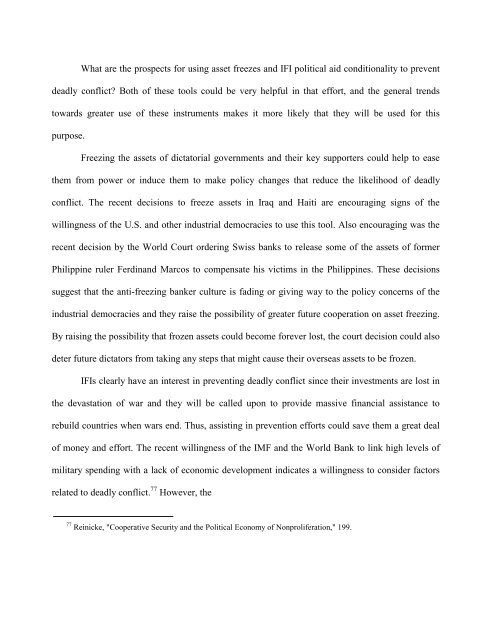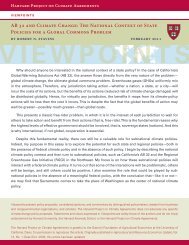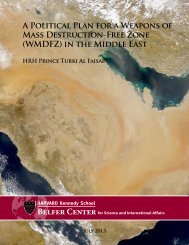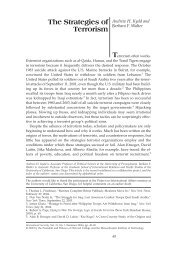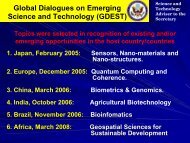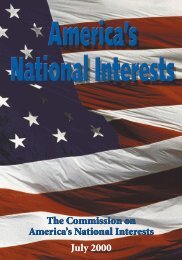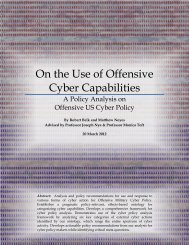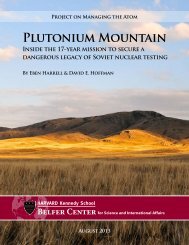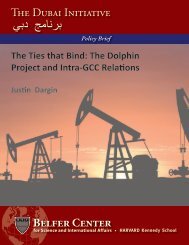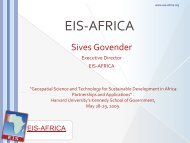Using Economic Sanctions to Prevent Deadly Conflict Elizabeth S ...
Using Economic Sanctions to Prevent Deadly Conflict Elizabeth S ...
Using Economic Sanctions to Prevent Deadly Conflict Elizabeth S ...
Create successful ePaper yourself
Turn your PDF publications into a flip-book with our unique Google optimized e-Paper software.
What are the prospects for using asset freezes and IFI political aid conditionality <strong>to</strong> preventdeadly conflict? Both of these <strong>to</strong>ols could be very helpful in that effort, and the general trends<strong>to</strong>wards greater use of these instruments makes it more likely that they will be used for thispurpose.Freezing the assets of dicta<strong>to</strong>rial governments and their key supporters could help <strong>to</strong> easethem from power or induce them <strong>to</strong> make policy changes that reduce the likelihood of deadlyconflict. The recent decisions <strong>to</strong> freeze assets in Iraq and Haiti are encouraging signs of thewillingness of the U.S. and other industrial democracies <strong>to</strong> use this <strong>to</strong>ol. Also encouraging was therecent decision by the World Court ordering Swiss banks <strong>to</strong> release some of the assets of formerPhilippine ruler Ferdinand Marcos <strong>to</strong> compensate his victims in the Philippines. These decisionssuggest that the anti-freezing banker culture is fading or giving way <strong>to</strong> the policy concerns of theindustrial democracies and they raise the possibility of greater future cooperation on asset freezing.By raising the possibility that frozen assets could become forever lost, the court decision could alsodeter future dicta<strong>to</strong>rs from taking any steps that might cause their overseas assets <strong>to</strong> be frozen.IFIs clearly have an interest in preventing deadly conflict since their investments are lost inthe devastation of war and they will be called upon <strong>to</strong> provide massive financial assistance <strong>to</strong>rebuild countries when wars end. Thus, assisting in prevention efforts could save them a great dealof money and effort. The recent willingness of the IMF and the World Bank <strong>to</strong> link high levels ofmilitary spending with a lack of economic development indicates a willingness <strong>to</strong> consider fac<strong>to</strong>rsrelated <strong>to</strong> deadly conflict. 77 However, the77 Reinicke, "Cooperative Security and the Political Economy of Nonproliferation," 199.


